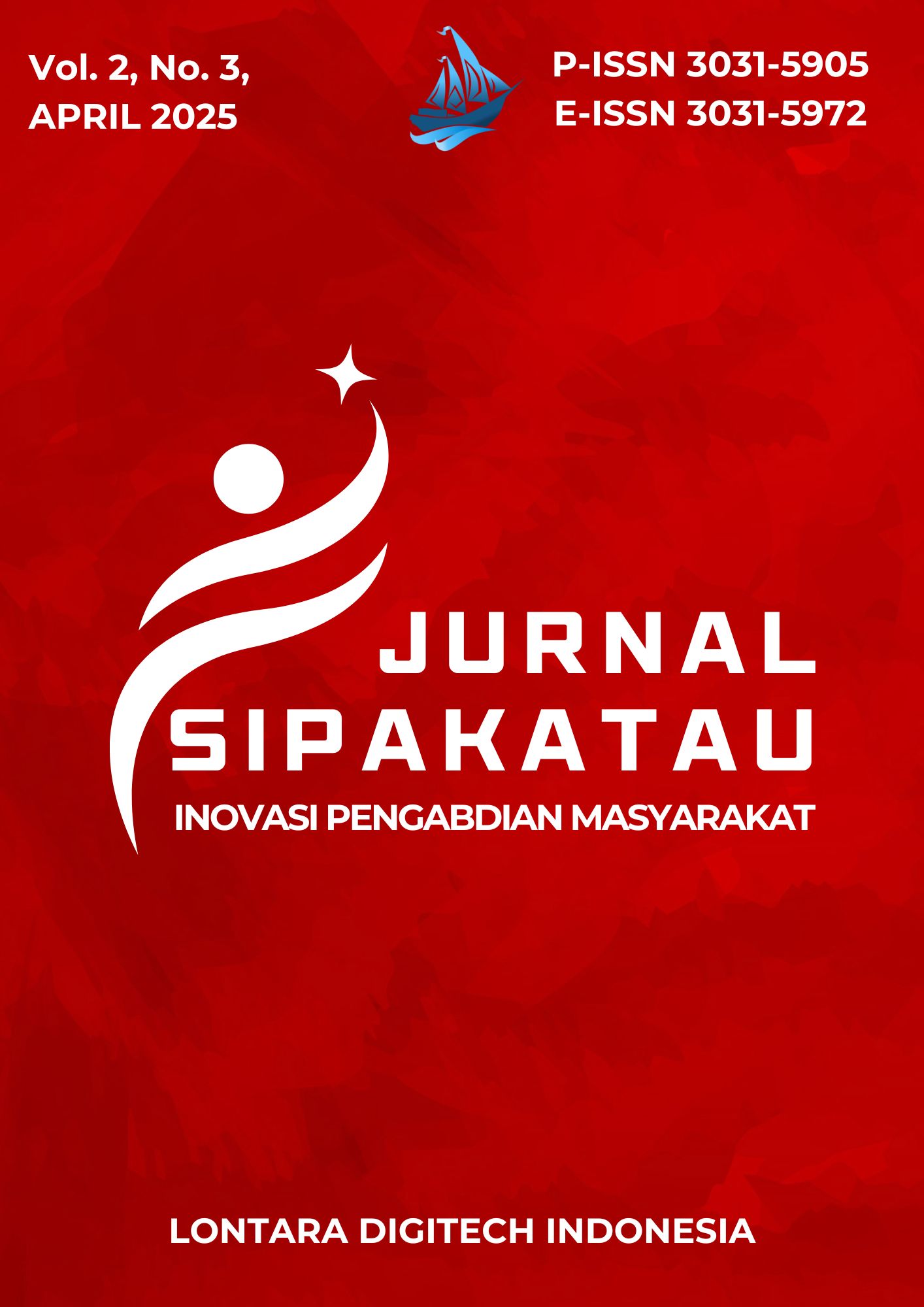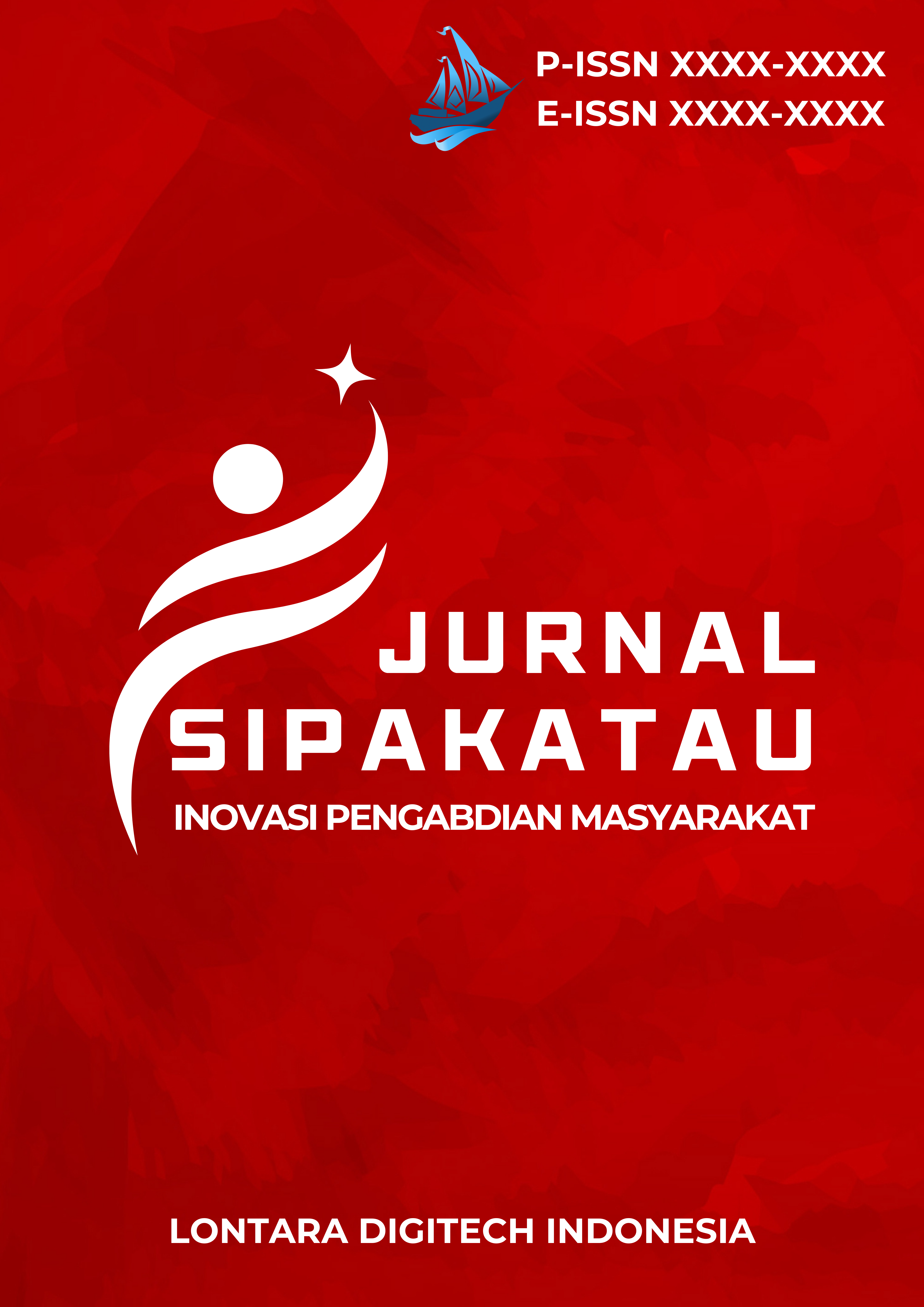Enhancing Students’ English Vocabularies through Fun Digital Class
DOI:
https://doi.org/10.61220/jsipakatau.v2i3.259Keywords:
English Vocabularies, Duolingo, Fun Digital ClassAbstract
The implementation of English language learning at the elementary school level in Indonesia continues to face significant challenges. One widely proposed solution to address these challenges is the integration of digital technology into English language instruction. The Fun Digital Class program aims to introduce and enhance elementary students’ vocabulary acquisition at SD Inpres Cambaya IV Makassar. Through the use of the Duolingo application, this program provides an engaging and effective method for English vocabulary learning, helping students build a strong foundation in language learning while fostering a positive attitude toward foreign language acquisition, particularly English. This program was conducted over a period of two months and involved 20 students from grades 4 to 6 (aged 10–12 years) who participated in an extracurricular English language program titled Fun Digital Class. The participants were selected using purposive sampling, considering that they shared a similar basic proficiency level in English, which was generally categorized as low. The program was implemented in three phases: the Preparation Phase, the Implementation Phase, and the Evaluation Phase. During its execution, the program successfully stimulated students’ enthusiasm and motivation in learning English vocabulary. As a result, participants demonstrated improved comprehension and mastery of English vocabulary by the end of the program. Furthermore, the majority of students expressed enjoyment and gratitude for the implementation of this program at their school, as it provided them with an engaging and enjoyable English learning experience.
References
Bakri, F., Weda, S., Hasbi, M., Halim, A., Nasta, M. (2024). Pelatihan Mengajar Bahasa Inggris dengan Metode PPP. Madaniya, 5(2), 433-440. https://doi.org/10.53696/27214834.780
Cameron, L. (2022). Teaching Languages to Young Learners (3rd ed.). Cambridge University Press.
Chapelle, C. A., & Sauro, S. (2019). The Handbook of Technology and Second Language Teaching and Learning. Wiley-Blackwell.
Hasbi, M, Khaer, M.M., Bakri, F., Halim, A., Isma, A. (2024). Teaching English Vocabulary Using Comic Media: Pengajaran Kosa Kata Bahasa Inggris Menggunakan Media Komik. Jurnal Sipakatau: Inovasi Pengabdian Masyarakat, 1(5), 177-183. https://doi.org/10.61220/sipakatau
Kukulska-Hulme, A., & Shield, L. (2021). Mobile-Assisted Language Learning: A thirty-year trajectory. Language Learning & Technology, 25(3), 1-20.
Liu, D., & Puri, R. (2021). Gamification in education: Recent developments and implications for language learning. International Journal of Game-Based Learning, 11(2), 39-54.
Musthafa, B. (2021). Teaching English to young learners in Indonesia: Essential requirements. Indonesian Journal of Applied Linguistics, 10(2), 288-299.
Nation, I. S. P. (2020). Learning Vocabulary in Another Language (3rd ed.). Cambridge University Press.
Sari, A. P., & Wijaya, A. (2022). Implementasi pembelajaran digital di sekolah dasar Indonesia: Tantangan dan prospek. Jurnal Pendidikan Dasar, 11(1), 45-57.
Schmitt, N. (2020). Vocabulary in Language Teaching (2nd ed.). Cambridge University Press.
Sulistiyo, U. (2022). English language teaching in Indonesian primary schools: Challenges and opportunities. TEFLIN Journal, 33(1), 47-62.
Vesselinov, R., & Grego, J. (2022). The Duolingo efficacy study. Joint Research Report, Duolingo.
Widodo, H. P., & Dewi, V. (2023). Vocabulary learning strategies of Indonesian primary school students. Asia-Pacific Journal of Research in Early Childhood Education, 17(1), 75-92.
Yang, Y., Asaad, Y., & Dwivedi, Y. (2022). Gamification in e-learning: The effects of points, leaderboards, badges, and levels on student engagement and performance. Internet Research, 32(1), 218-244.
Yusuf, H., & Rahman, A. (2022). Pembelajaran kosakata bahasa Inggris di sekolah dasar: Perspektif multiple intelligences. Jurnal Pendidikan Bahasa Inggris, 7(2), 156-171.
Downloads
Published
Issue
Section
License
Copyright (c) 2025 Muhammad Hasbi (Author)

This work is licensed under a Creative Commons Attribution-ShareAlike 4.0 International License.
















 Email: sipakatau@lontaradigitech.com
Email: sipakatau@lontaradigitech.com
